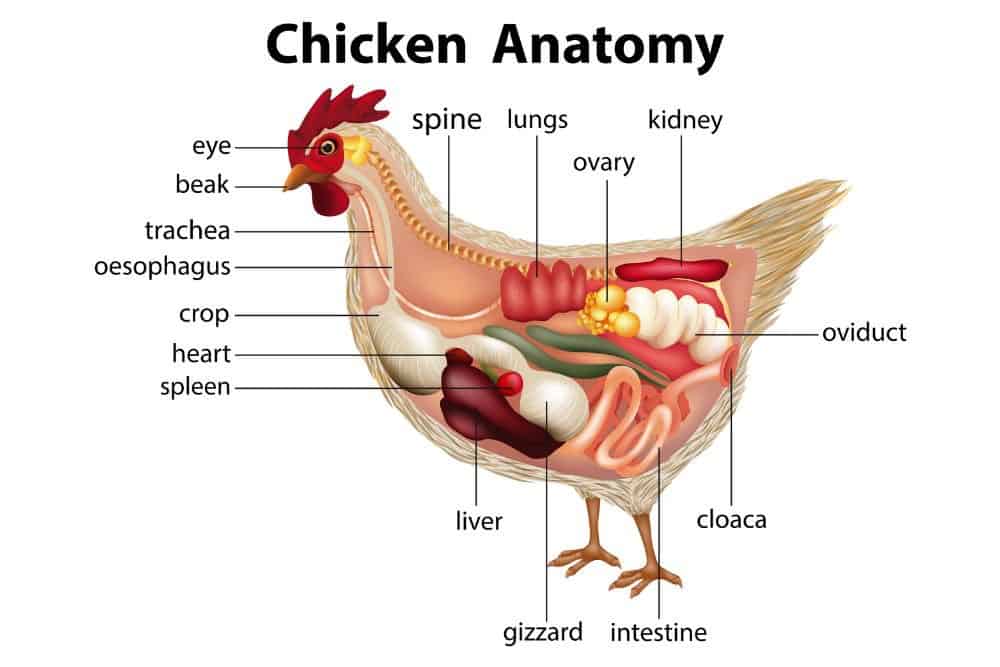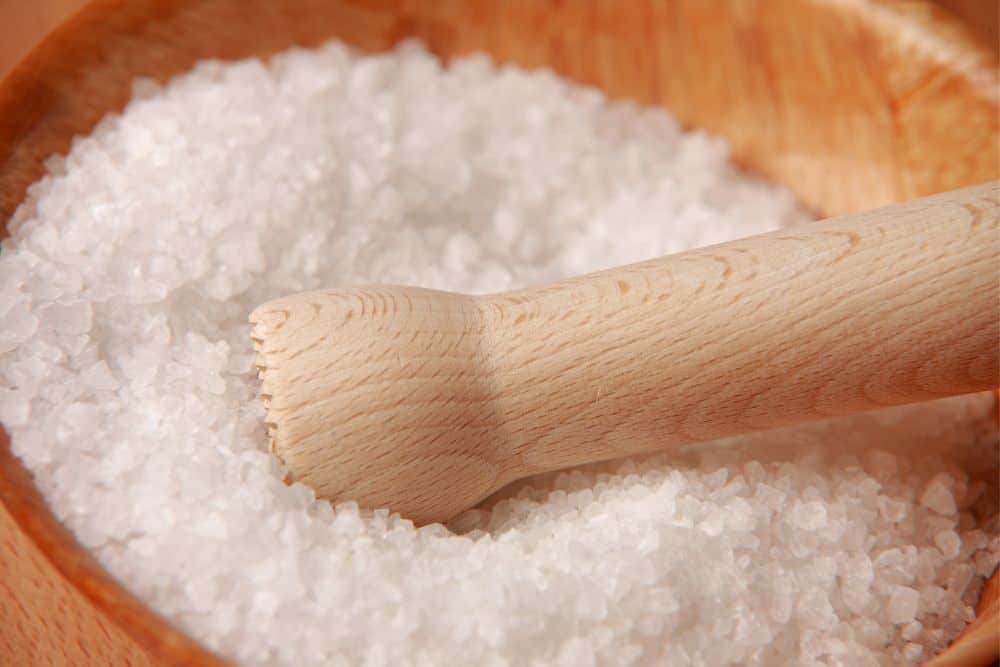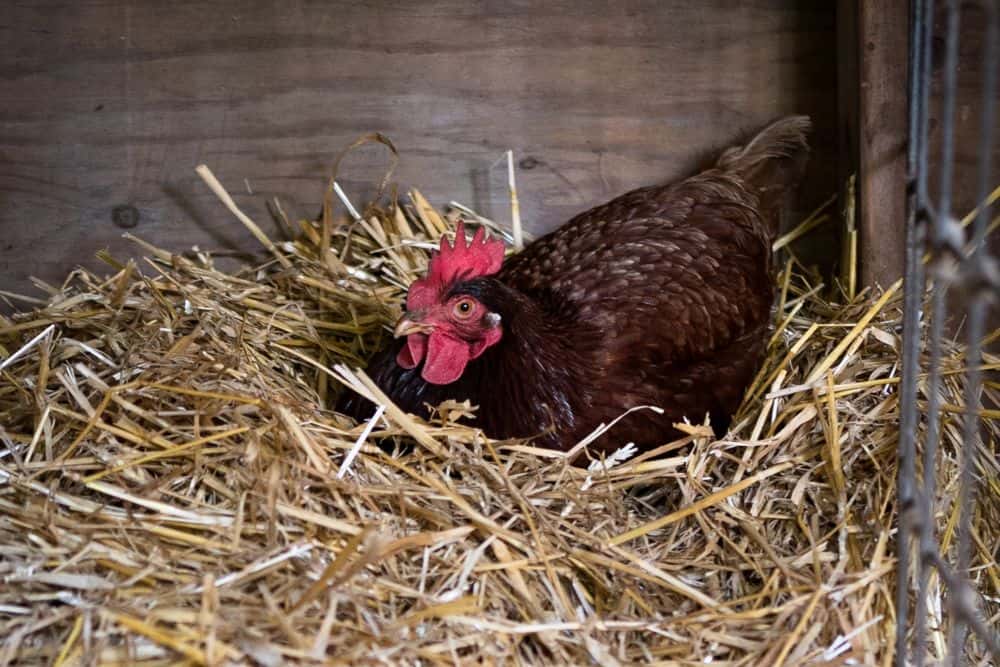Egg binding is a condition where a chicken struggles to move an egg through her oviduct effectively. It’s potentially fatal, so treating the problem correctly is important.
If your hen is egg bound, she will likely adopt an upright stance like a penguin. She may also make repeated trips to the nesting box without actually laying an egg. If you suspect that your hen is egg bound, you should immediately take action.
With prompt treatment, most hens make a full recovery. However, if the condition is left untreated, it can lead to death.
How to Tell the Difference Between an Egg-Bound Chicken and a Constipated Chicken
If you’re a chicken keeper, you probably know that there are two main gastrointestinal issues that your birds can experience: egg binding and constipation. Both of these problems can be serious, but they’re also easily treatable if you catch them early. So, how can you tell the difference between an egg-bound chicken and a constipated chicken?
The most notable difference is that an egg-bound chicken will take to the nest box all day. She’ll often stay there even when she’s not laying an egg. Egg binding is the number one cause of death in backyard chickens, but it can be easily treated if caught early. To tell if an egg-bound chicken is constipated, perform a physical examination.

If you think your chicken may be egg bound, the best place to start is by feeling her stomach (gizzard). Is it hot to the touch? Do you feel an egg-shaped lump in her oviduct? If she is egg bound, you’ll notice that her abdomen is hot to the touch, and there should be a hard egg-shaped lump in her oviduct.
A constipated chicken’s stomach will also be hard and potentially hot to the touch, but that hardness will be more widespread than egg-shaped. Egg binding is a serious condition that can lead to death if not treated promptly.
It could be constipated or egg-bound if your chicken isn’t laying eggs. To figure out which it is, you can perform a vent check. This involves inserting your finger into the chicken’s vent (butt) to feel for an egg.
Put on some surgical or rubber gloves and use a water-based lube. Some people suggest using olive oil, but it can get rancid and worsen constipation, so stick with the lube.
You shouldn’t have to go too far before you feel the egg, so if you can’t feel anything after about two inches, your chicken is probably constipated.
If you can feel or see an egg, start treatment immediately.
Three Ways to Help an Egg-Bound Chicken Survive

#1. A Warm Water Bath
If you’ve ever had a bath with Epsom salts, you know how relaxing it can be. The magnesium in the salts can help to ease muscle tension and relieve pain. Well, it turns out that Epsom salts can also be beneficial for chickens!
Soaking a chicken in warm water with Epsom salts can help to relax the chicken and relieve pressure, which may help dislodge the egg. In addition, Epsom salt baths can also be used to alleviate constipation in chickens.
All you need is a bucket of warm water and some Epsom salts. Dissolve a handful of the salts in the water and let your chicken soak for 15 to 20 minutes. The warm water and Epsom salts should help ease the abdominal straining and hopefully induce the chicken to poop.
Once she’s finished bathing, dry her off using a towel or hairdryer and move her to a quiet, darkened area with added electrolytes and vitamins.
You may need to repeat this process for the next 24 to 48 hours, but eventually, your chicken should be back to normal!
#2. External Massage
To do this, gently palpate the chicken’s abdomen until you can feel the egg. Then, manipulate it, moving it towards the vent. This may help her to pass the egg and relieve some of the pressure she’s feeling. However, only attempt this if your hen is still bright and hasn’t gone into shock. If she seems weak or lethargic, it’s best to call a vet for help.
Try to mimic their natural compressions by applying pressure for 3 seconds before releasing. Repeat several times to help release the egg while checking to see if the egg appears at the vent.
It’s important to watch your chicken for any signs of stress during the process, such as accelerated breathing. If the egg is visible but not slipping out easily, apply more lubricant or use a Q-tip with saline solution to gently roll the cloaca back along the egg.
If the egg still doesn’t slip out after trying these methods, you have two options: remove the egg yourself or call a veterinarian. Hopefully, your chicken will be back to laying eggs in no time!
#3. Egg Removal
As any chicken keeper knows, eggs are a delicate part of the reproductive process. If an egg is visible from the outside, it can be tempting to try to remove it. However, this is a dangerous process that should only be attempted as a last resort.
If an egg is visible, it can be removed with an 18 – 20 gauge needle and a large syringe. Lubricant should be used to help the process.
However, this method is dangerous, and a broken egg could be fatal. Therefore, it should only be attempted as a last resort.
If you find yourself with a hen that’s having trouble laying an egg, you can do a few things to help her out. One option is to lubricate her vent with a water-based lubricant and use a needle and syringe to suction out the egg contents.
This should cause the egg to collapse, making it easier for the hen to pass. Some chicken owners recommend using tweezers to remove the collapsed shell but doing this can cause more harm, especially if a sharp piece of shell cuts the chicken as it’s removed.
Most veterinarians recommend leaving the chicken to pass the shell naturally, which it should do within a matter of days. In the meantime, ensure she has plenty of fresh water and food and try to keep her stress levels low.
How to Prevent Egg-Binding In Chickens
Egg binding is a serious health issue that can be prevented by taking some simple steps to ensure the egg-laying process goes smoothly.
Free-range chickens are less susceptible to egg retention because they’re constantly on the move and have access to plenty of fresh greens. Free-range chickens enjoy a more balanced diet and exercise more than their cooped-up counterparts.
Obese chickens are far more prone to egg binding because their muscles aren’t as strong, which makes it harder for them to contract and push the egg out.
Elderly chickens are also at higher risk, as are young hens, or pullets, that have been encouraged into premature laying with artificial lights. This is due to the stress that’s placed on their bodies when they’re not allowed to rest and recuperate properly when they are encouraged to lay with artificial lights.
Worm infestations can also cause problems such as egg binding, so treating your flock regularly with an effective dewormer can help prevent such conditions. Diatomaceous earth is one example of a dewormer that is a natural dewormer that’s safe for chickens and effective at preventing worm infestations.
Taking these simple measures can help your chickens stay healthy and avoid the potentially fatal consequences of egg binding.
Egg binding is a common problem in chickens, caused by many factors, including poor diet and calcium deficiency. A balanced diet and regular deworming can help prevent egg binding. Feeding your chickens a combination of high-fiber foods and leafy greens is the best way to avoid this problem.
Clean water is also important for chickens’ health. Ensure your chickens have access to plenty of fresh water and include some grit in their diet to help with digestion. Following these simple tips can help your chickens stay healthy and avoid the problems associated with egg binding.
Identifying an Egg Bound Chicken May Save Her Life
While not common, egg binding is a serious problem that can be fatal for chickens if not treated promptly. Also known as egg retention, this condition occurs when a chicken is unable to lay her eggs.
The egg becomes stuck in the chicken’s body, and the chicken may eventually die if the egg is not released. There are several signs that a chicken may be egg bound, including sitting in a hunched position, lethargy, and decreased appetite.
If you think your chicken may be egg bound, it is important to take her to the vet right away. Some simple measures you can take to avoid egg binding include providing plenty of space for her to exercise and lay eggs, as well as access to fresh water and fiber-rich food.
By taking these steps, you can help to ensure that your chicken stays healthy and happy – and avoid a potentially fatal condition.
In Conclusion
Egg binding is a serious health issue that can be prevented by taking simple steps to ensure the egg-laying process goes smoothly. Feeding your chickens a combination of high-fiber foods and leafy greens is the best way to avoid this problem.
Clean water is also important for chickens’ health. Ensure your chickens have access to plenty of fresh water and include some grit in their diet to help with digestion.
Following these simple tips can help your chickens stay healthy and avoid the problems associated with egg binding.

